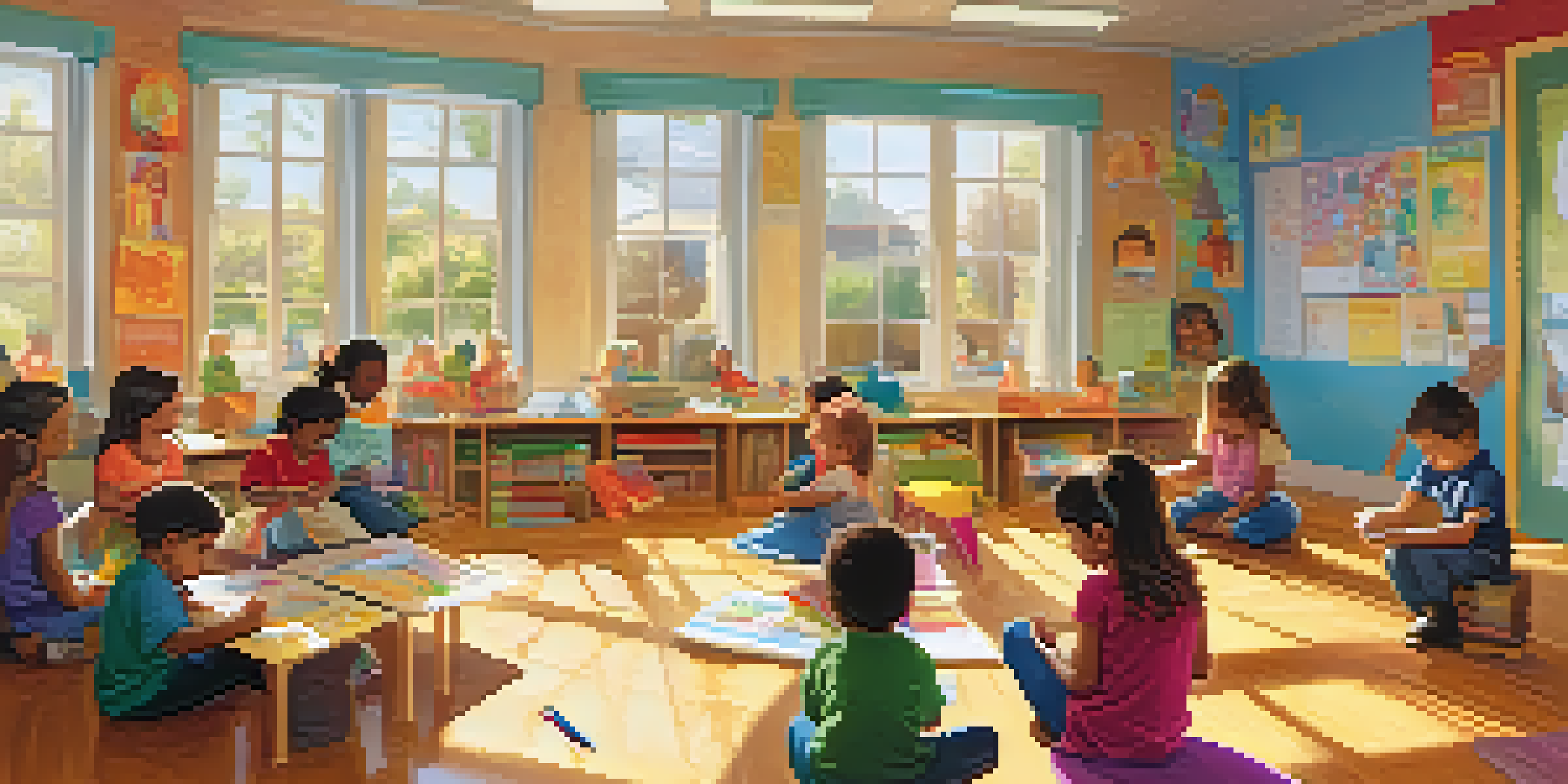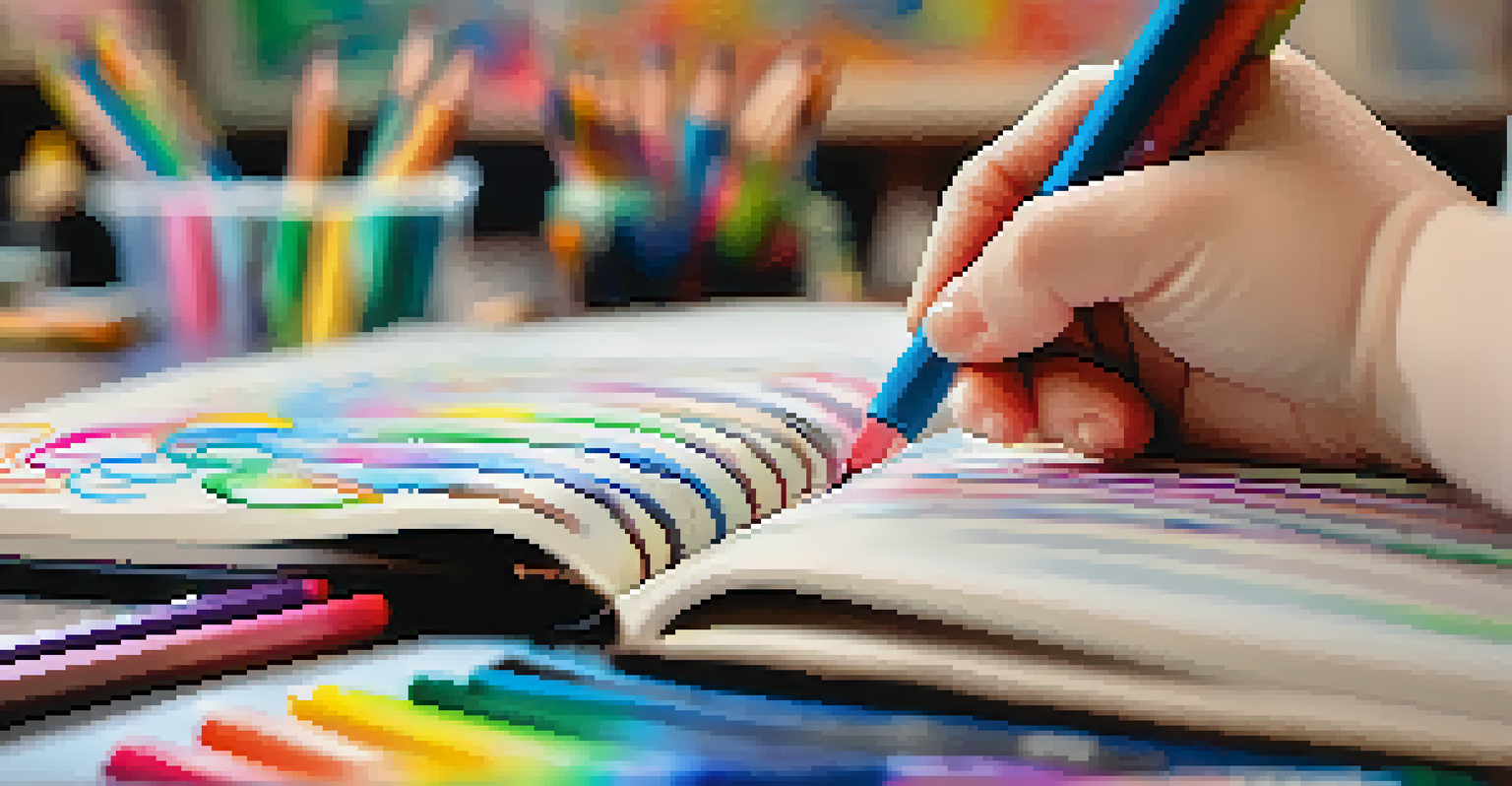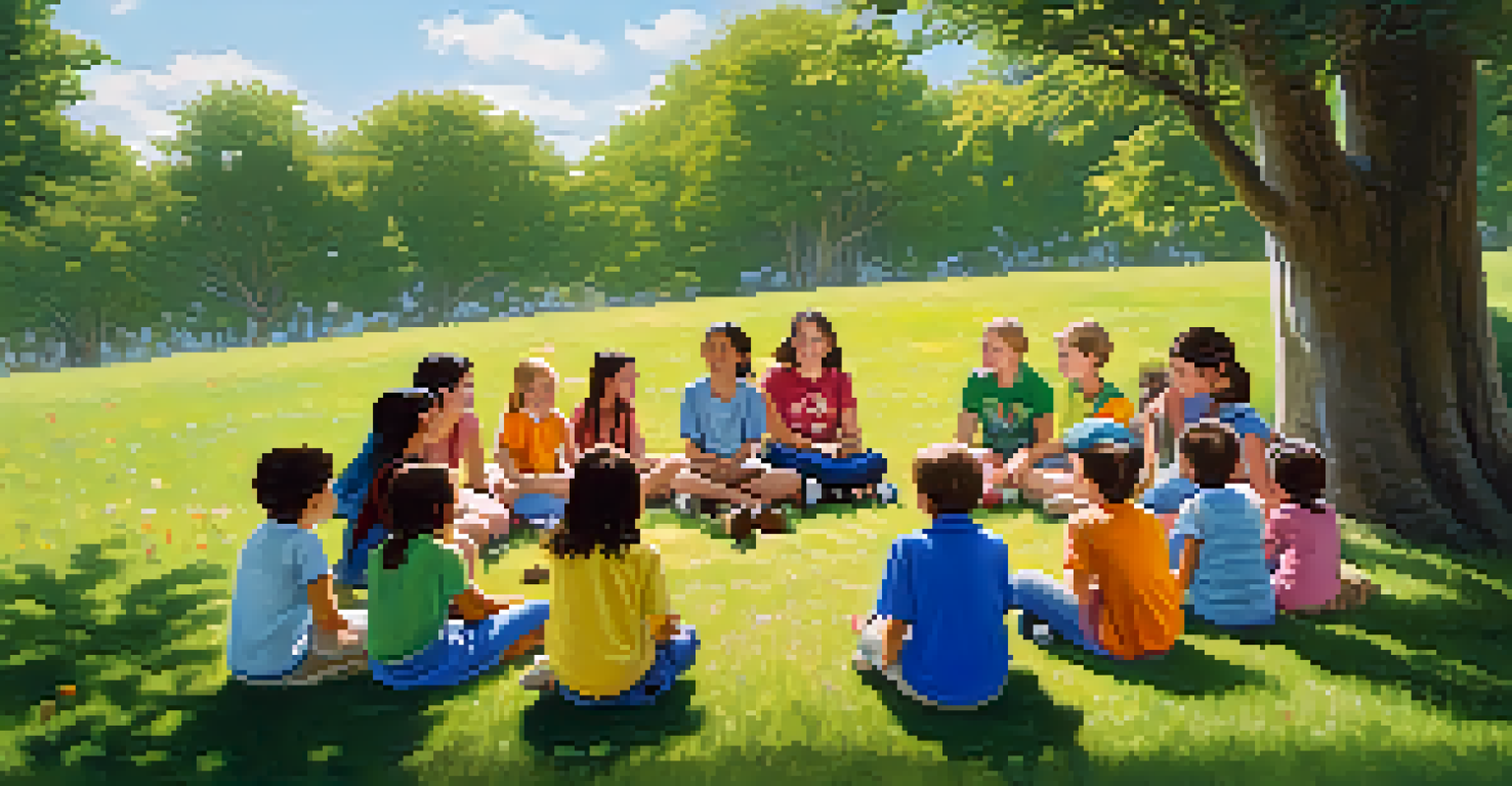Exploring the Role of Reflection in Early Learning

The Importance of Reflection in Early Childhood Education
Reflection is a crucial component of early childhood education that allows young learners to make sense of their experiences. It encourages children to think about what they did, how they felt, and what they can learn from various activities. By engaging in reflective practices, children can develop critical thinking skills that will serve them throughout their lives.
Reflection is one of the most important tools of learning.
In the classroom, reflection can take various forms, such as group discussions, journaling, or even creative expression like drawing. These methods help children articulate their thoughts and emotions, fostering a deeper understanding of their learning journey. For example, after a science experiment, children can discuss what worked, what didn’t, and why, enhancing their investigative skills.
Moreover, reflection promotes a growth mindset, teaching children that mistakes are part of learning. When they recognize that challenges can lead to improvement, they become more resilient and open to new experiences. This mindset is foundational for lifelong learning, allowing them to approach future challenges with confidence.
How Reflection Enhances Emotional Development
Early learning is not just about academic skills; emotional development plays a pivotal role too. Reflection helps children connect their experiences to their feelings, which is essential for emotional intelligence. Understanding their emotions enables children to relate better to peers, resolve conflicts, and express themselves in healthy ways.

For instance, after a group activity, a teacher might ask children to share how they felt during the task. This practice encourages them to articulate their emotions, fostering empathy and social skills. When children learn to recognize their feelings, they also become more attuned to the emotions of others, creating a supportive learning environment.
Reflection Boosts Critical Thinking
Engaging in reflective practices helps children analyze their choices and outcomes, fostering essential problem-solving skills.
Additionally, reflection provides a safe space for children to process their experiences, which can be particularly beneficial after challenging situations. By discussing their feelings in a guided setting, children can navigate their emotions and learn coping strategies. This practice not only aids their emotional growth but also builds a strong foundation for future interpersonal relationships.
Fostering Critical Thinking Through Reflective Practices
Critical thinking is an essential skill that can be nurtured through reflection in early learning settings. When children are encouraged to think about their choices and the outcomes of their actions, they begin to analyze situations more deeply. This ability to evaluate and make decisions is crucial for problem-solving in everyday life.
The ability to reflect is one of the most important skills a student can develop.
Teachers can facilitate critical thinking by posing open-ended questions during reflective activities. For example, after a storytelling session, asking questions like 'What would you have done differently?' or 'Why do you think the character acted that way?' prompts children to think critically about the narrative. Such discussions not only spark creativity but also teach children to consider different perspectives.
Moreover, reflecting on real-life scenarios helps children apply their critical thinking skills outside the classroom. By discussing everyday challenges and exploring various solutions, they learn to approach problems with a thoughtful mindset. This skill will be invaluable as they encounter more complex issues in their educational journey and beyond.
The Role of Educators in Encouraging Reflection
Educators play a vital role in fostering a reflective environment in early childhood settings. Their guidance can help children understand the importance of thinking back on their experiences, and they can model reflective practices themselves. When teachers share their own reflections, it creates a culture of openness and learning.
Additionally, educators can incorporate structured reflection time into the daily routine, allowing children to pause and think about their learning. This could be as simple as a few minutes at the end of the day dedicated to sharing thoughts or feelings about what they learned. Such practices make reflection a natural part of the learning process.
Emotional Growth Through Reflection
Reflection allows children to connect their experiences with their emotions, enhancing their emotional intelligence and social skills.
By providing supportive feedback and encouraging children to ask questions about their experiences, educators can help deepen the reflective process. This support not only enhances the learning experience but also builds trust between teachers and students, creating a safe space for exploration and growth.
Incorporating Reflection into Daily Activities
Integrating reflection into everyday activities can significantly enrich early learning experiences. Simple practices, such as end-of-day circle time, can be an effective way for children to share reflections on their day. This not only reinforces what they have learned but also helps build a sense of community within the classroom.
Another effective method is using reflective journals, where children can draw or write about their experiences. These journals serve as a personal space for children to express their thoughts and feelings, allowing them to revisit and analyze their learning over time. For example, after a field trip, children can document their favorite moments and what they learned about the subject.
Moreover, incorporating technology can also enhance reflection; digital tools like videos or apps allow children to document their learning journey creatively. This not only makes reflection engaging but also caters to various learning styles. By embracing diverse methods, educators can ensure that all children benefit from reflective practices.
Challenges and Solutions in Implementing Reflection
While the benefits of reflection in early learning are clear, implementing it can come with challenges. Some children may struggle to articulate their thoughts or may feel hesitant to share their feelings. This can create barriers to effective reflection and limit its benefits.
To address these challenges, educators can create a supportive environment where children feel safe to express themselves. Using prompts and guiding questions can help children articulate their thoughts more easily. For instance, visual aids or storytelling can prompt children to reflect on their experiences without feeling overwhelmed.
Educators Foster Reflective Learning
Teachers play a crucial role in creating a reflective environment by modeling practices and encouraging open discussions among children.
Additionally, patience is key; not every child will be comfortable sharing their reflections immediately. Providing varied opportunities for reflection, such as one-on-one discussions or small group activities, allows children to engage at their own pace. By fostering a nurturing atmosphere, educators can encourage all children to embrace reflective practices.
The Long-Term Benefits of Reflection in Learning
The impact of reflection in early learning extends far beyond the classroom. Children who engage in reflective practices develop essential skills that will benefit them throughout their educational journey and into adulthood. This includes enhanced critical thinking, emotional intelligence, and problem-solving abilities, all of which are vital in today’s world.
Moreover, reflective practices can lead to a love of learning. When children feel empowered to think about their experiences, they become more curious and engaged learners. This intrinsic motivation can inspire them to explore new ideas and subjects, creating lifelong learners who seek knowledge for its own sake.

In the long run, the skills developed through reflection can help children navigate their personal and professional lives more effectively. As they grow, they will face various challenges that require thoughtful analysis and emotional resilience. By starting this journey in early learning, we equip them with the tools they need to thrive in an ever-changing world.